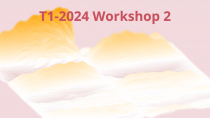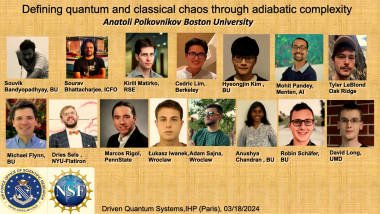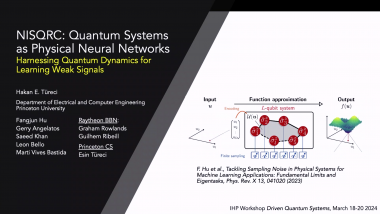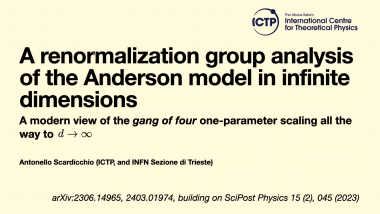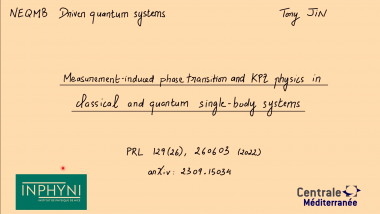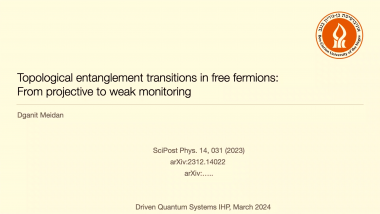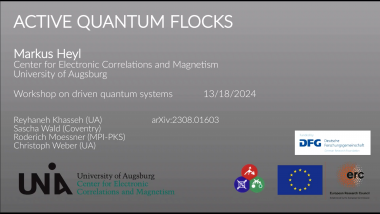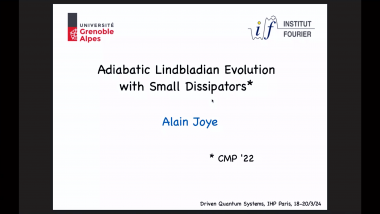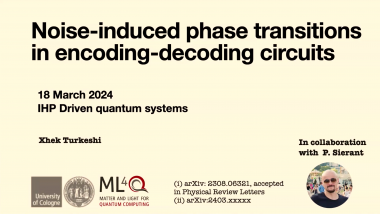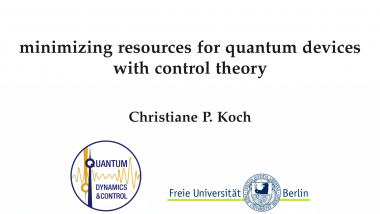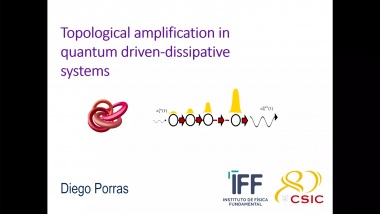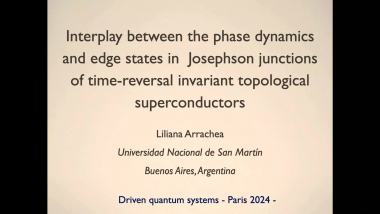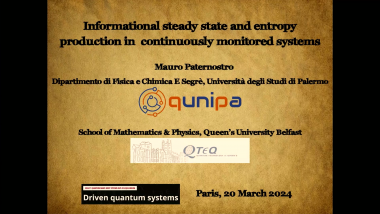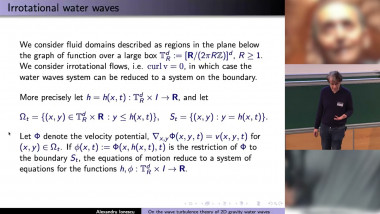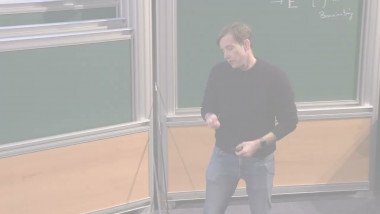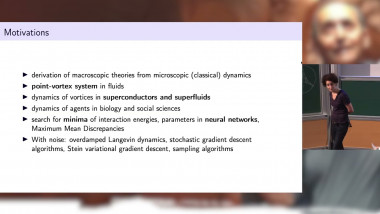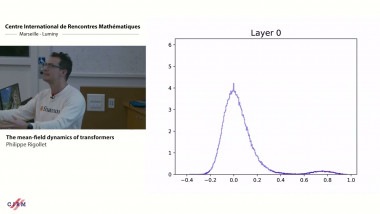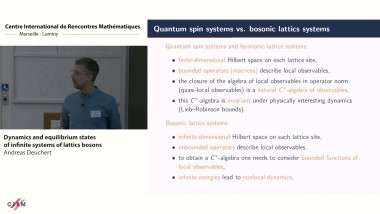Defining quantum and classical chaos through adiabatic complexity
In this talk I will show that the notion of chaos both in quantum and classical Hamiltonian systems can be rigorously formulated through complexity of adiabatic transformations. This complexity is encoded in the fidelity susceptibility or more broadly in the geometric tensor. In classical systems this measure reflects complexity of trajectory-preserving canonical transformations under infinitesimal deformations of the Hamiltonian, while in quantum systems it reflects complexity of eigenstate transformations.
I will argue that generically integrable and ergodic regimes are separated by a buffer KAM glassy region with a sharp maximum of this susceptibility inside. The KAM regime can be either transient but very long lived in the thermodynamic limit or be stable in finite size systems. In gases or fluids this KAM regime is familiar to us through emergence of highly unstable turbulent flows at small interaction strengths.
I will also argue that the transition from integrable to ergodic/mixing regimes is generally described by a two-parameter finite time scaling theory with integrable points playing a similar role to critical points for continuous phase transitions.











